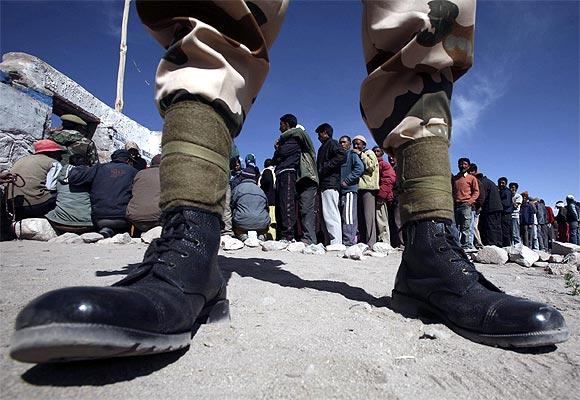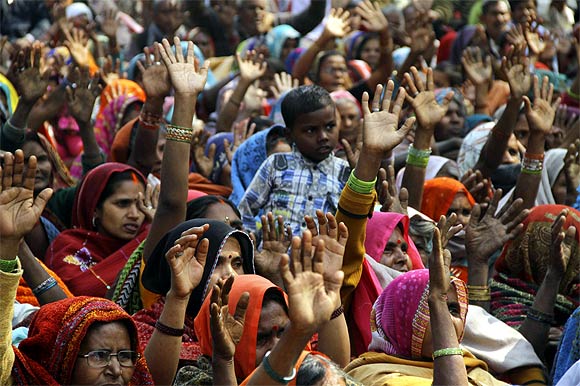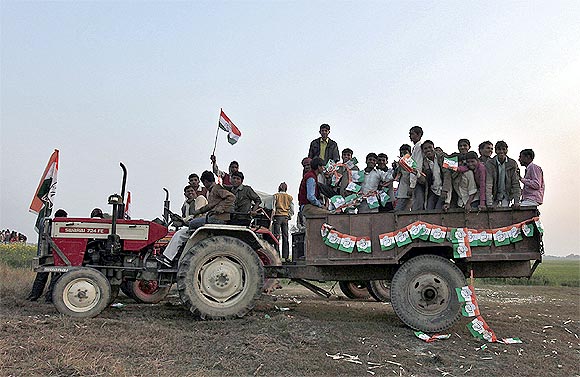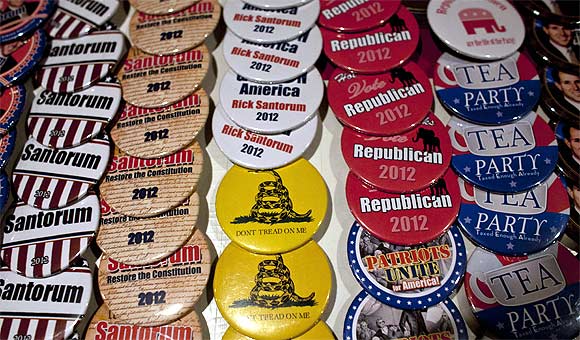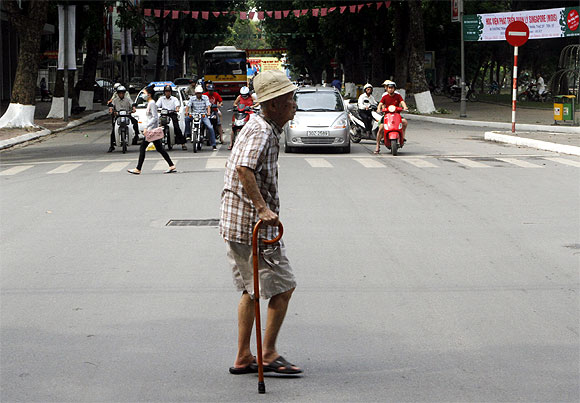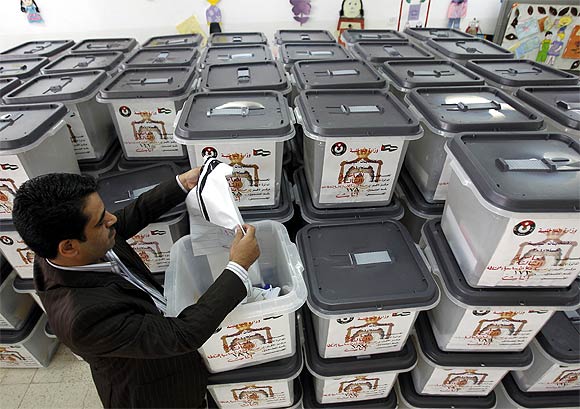 | « Back to article | Print this article |
Regulating money in politics: India fares BADLY
India is among the lowest scoring countries on political finance regulation, according to a new report.
The Global Integrity Report for 2011, which was released on Friday, indicates that developing as well as developed countries are struggling to effectively implement money-in-politics rules.
Global Integrity is an international non-profit organisation which tracks governance and corruption trends in the world.
The Election Commission in India has instituted measures to create enhanced transparency and closer scrutiny of financing and election expenses. It is pushing the government for electoral reforms that help track sources of political funding.
Click on NEXT for more...
Regulating money in politics: India fares BADLY
The country dismally performed on individual candidate financing and scored a paltry 28. It scored 45 on Conflicts of Interest Safeguards & Checks and Balances in judicial Branch.
India scored 0 out of 100 on implementation and disclosure of political party and candidate financing information to the public, an aspect that is non-existent.
The country also scored a 0 on effectiveness of its modest party financing regulations, while the set of regulations per se received a score of 67 out 100.
The country dismally performed on individual candidate financing and scored a paltry 20 out 100 on the legal framework. It scored 46 on Law Enforcement: Conflicts of Interest Safeguards and Professionalism.
Click on NEXT for more...
Regulating money in politics: India fares BADLY
Overall, India scored a weak rating of 70/100. Its Legal Framework hit 87 points while implementation of law scored even a weaker 55 out of 100.
"We remain deeply concerned by the lack of progress globally on effectively regulating the flow of large sums of private money into the elections process in many countries," said Global Integrity's Executive Director, Nathaniel Heller.
The report also states, "Anti-corruption agencies often fail to fulfill expectations. Many anti-corruption agencies assessed in 2011 are heavily politicised and are not independent from the governments they are ostensibly tasked with monitoring".
Click on NEXT for more...
Regulating money in politics: India fares BADLY
The United States scored just 29 out of 100 on the effectiveness of its party financing regulations and 25 in its ability to effectively regulate contributions made to individual political candidates.
Those scores represent a significant decrease from 2009, the last year Global Integrity covered the US, and reflect thenegative impact of the "Citizens United" Supreme Court decision in early-2010 that loosened the controls over private money flowing into US elections.
In Asia, countries assessed have earned modest overall scores, except Vietnam, which earned poor ratings with large implementation gaps, particularly in Azerbaijan, highlighted as a "concern" for all countries in the region.
The West African category has earned moderate overall ratings, but face particular challenges in the areas of whistle-blowing, political financing transparency, and judicial branch accountability.
Click on NEXT for more...
Regulating money in politics: India fares BADLY
"The lack of robust oversight of political financing is a major weakness in several regions, but the problem appears particularly acute in West Africa where the legal and practical framework to regulate donations is non-existent or ineffective," reads another part of the report.
Another region assessed was Middle East and North Africa. The overall performance of Algeria and Jordan has remained steady since the 2009 Global Integrity Report, attributed to the possibility that the two countries have yet to feel the effects of the political changes sweeping the region one year after the Arab Spring.
The Latin American countries earned moderate overall ratings, the exceptions being Venezuela and Nicaragua, which scored poorly while Colombia, Mexico, Nicaragua, and Venezuela suffer from significant implementation gaps.
Click on NEXT for more...
Regulating money in politics: India fares BADLY
"We flag four key anti-corruption safeguards that are extremely weak in the Latin American countries covered in this year's report: the judiciary, civil service, whistle-blowing, and law enforcement," the report reads.
In Eastern Europe and the Former Soviet Union, most of the countries covered in the 2011 Global Integrity Report have reportedly seen relatively minor changes in their overall performance since the 2009 assessment.
The most significant weaknesses in the region are in the areas of judicial accountability, law enforcement, and political financing with legal safeguards against conflicts-of-interest and political interference being more-or-less in place in these sub-categories of the Integrity Indicators.
Click on NEXT for more...
